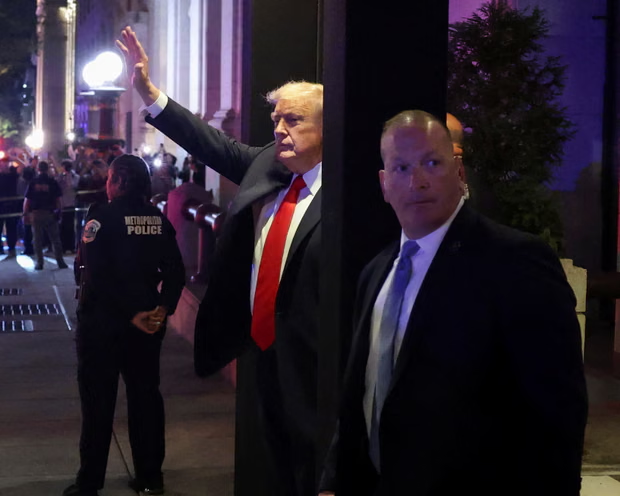The White House has indicated it would support a forensic examination of the signature on a letter linked to Jeffrey Epstein. This comes as the US Supreme Court temporarily blocked a lower court order requiring the Trump administration to release nearly $5 billion in congressionally approved foreign aid.
On Tuesday, Chief Justice John Roberts issued a temporary halt to a ruling that had directed the administration to spend the funds. The decision highlights legal disputes over former President Donald Trump’s efforts to sharply reduce US support for global development and emergency programs, leading to significant changes at the US Agency for International Development (USAID).
Trump’s recent directive to House Republican Speaker Mike Johnson stated he would withhold $4.9 billion in foreign aid that Congress had previously approved. He described the funding as “woke, weaponized and wasteful,” noting it was intended for United Nations programs, peacekeeping operations, development projects, and democracy promotion initiatives worldwide.
The president’s decision represented a rare “pocket rescission,” a move where funds are withheld shortly before the federal fiscal year ends on September 30. This approach prevents Congress from responding within the required 45-day window, effectively leaving the money unspent. Such a rescission has not been used in the past 50 years, making this a highly unusual case.
Following this action, federal judge Amir Ali in Washington DC ordered the administration to release the funds last week. The ruling prompted an immediate appeal to the Supreme Court. Roberts, who manages emergency petitions from Washington DC, has allowed the aid organizations involved in the lawsuit until Friday to respond to the temporary hold.
If left unspent, the withheld funds could affect multiple international programs, including humanitarian aid, disaster relief, and initiatives aimed at promoting democracy abroad. Experts warn that delaying or canceling these allocations could undermine the US’s role in global development and reduce support for vulnerable populations in critical regions.
USAID has undergone substantial restructuring under Trump, raising concerns among aid groups about the future of ongoing projects. The temporary Supreme Court order buys time for legal review, but the ultimate outcome could determine the fate of billions in foreign assistance.
In a separate but related matter, the White House has signaled support for forensic testing of a signature on a letter connected to Epstein. This measure is intended to ensure transparency and trust in communications involving high-profile figures, reflecting broader concerns over document authenticity in politically sensitive cases.
The Supreme Court’s temporary pause does not resolve the underlying dispute but provides a brief window for all parties to present their arguments. Aid groups now have until Friday to submit their filings, after which the court will decide whether to uphold or modify the temporary hold. Legal analysts suggest that the case could set a precedent for presidential authority over previously approved congressional funding.
The unfolding situation underscores the complex intersection of executive power, congressional oversight, and international aid. How the Supreme Court rules in the coming weeks may have lasting consequences for both US foreign policy and domestic legal norms.


